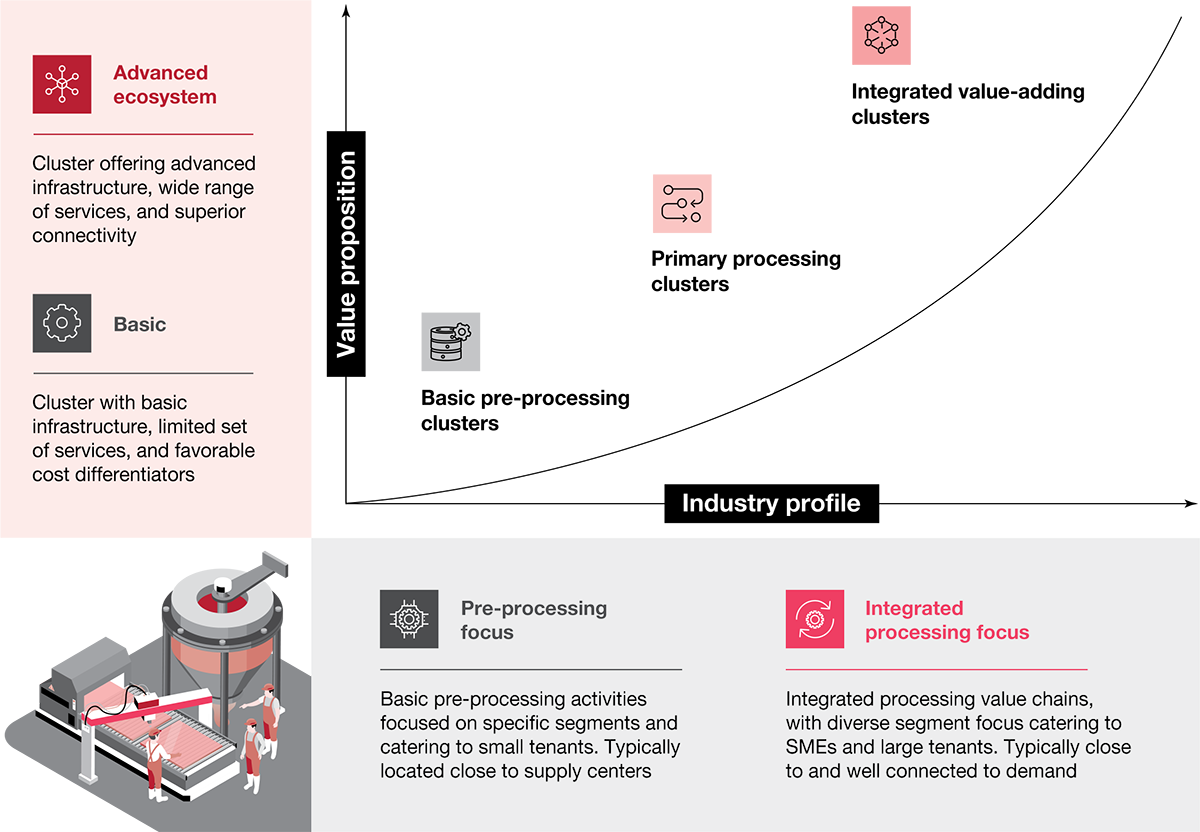Food demand in the Gulf Cooperation Council (GCC) countries is increasing, due to such factors as growing populations and rising disposable incomes. However, the region still imports most of its food, making it less self-sufficient and resilient. One proven way to strengthen the GCC’s food industry is for governments to develop food processing clusters. Sometimes known as food parks, these are centralized industrial zones with multiple companies that can process raw ingredients into the value-added products that the region’s consumers increasingly demand. Clustering already offers clear advantages in other industries, including vertical integration, reduced costs, greater synergies, and streamlined launch processes for new market entrants. That same approach can work in the GCC region’s food industry, resulting in strengthening food security; reducing dependence on imports; and making the food industry more value-creating, self-sufficient, and resilient.
Types of food processing clusters

Source: Strategy&
The development of food processing clusters within the GCC would deliver significant and immediate benefits. Such clusters would bolster regional food security, improve regional competitiveness, attract investment, encourage innovation, and strengthen human capital. Simultaneously, they would promote sustainable development and diversify GCC economies. By seizing this opportunity, GCC governments can build the food system of the future.
Contact us
















Menu